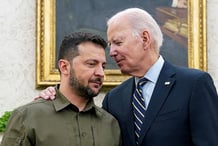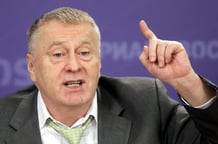
The views and positions of the Yemeni parties on the Russian-Ukrainian crisis varied, ranging from hesitation and silence that characterized the position of the internationally recognized government, or identification with the Russian position, which is the position of the Iran-backed Houthi group, one of Russia’s most prominent allies in the region.
Meanwhile, the Southern Transitional Council (participating in the government) is trying to get closer to the Russians after they recognized the regions of “Donetsk” and “Luhansk” as independent republics from Ukraine, and demanded Moscow’s support to achieve the secession of southern Yemen from its north, and to end the unity that has been going on since 1990.
The Yemeni government has been waging a war against the Houthis since their coup and seizure of power and the invasion of the capital, Sanaa, and most of the country’s governorates in late 2014. It is supported by Saudi Arabia, which has led a military coalition in support of the legitimate government since March 2015, while the Houthis receive Iranian support.
On February 24, Russia launched a military operation in Ukraine , which was followed by angry international reactions and the imposition of “tough” economic and financial sanctions on Moscow.
To end the process, Russia requires Ukraine to abandon any plans that would join military entities, including the North Atlantic Treaty Organization (NATO), and to take a position of complete neutrality.
Dependency positions
The writer and political analyst, Adel Al-Shuja’a, says that “the positions of the Yemeni parties are in line with the parties supporting each side. Legitimacy is its position on Saudi Arabia’s position in support of the West, and the position of the Houthis is consistent with the position of Iran, which forms an alliance with the Russians in Syria.”
He added that “the Transitional Council’s position coincides with the position of the UAE, which abstained from voting against Russia in the Security Council,” stressing that “all parties do not start their positions from national positions keen on the interest of Yemen, but rather from positions of dependence and support for the positions of supporters.”
The Yemeni government has not issued any statement defining its position on the Ukrainian-Russian crisis, and the Syrian regime is the only Arab to support the Russian military intervention in Ukraine, while Kuwait, Libya and Lebanon rejected it.
Palestine declared “disassociation” from the crisis, while Algeria and Iraq abstained from voting on a UN resolution that “regretted the Russian aggression” and called on Moscow to withdraw its forces from Ukraine, while Djibouti, Somalia, Comoros and Yemen supported the resolution.
In addition to 11 Arab countries that preferred neutrality through numerous invitations, initiatives and budgets, most notably: Egypt, Saudi Arabia, Jordan, UAE, Qatar, Sultanate of Oman, Morocco and Tunisia.
“The Partition of Yemen”
A number of Houthi leaders announced their support for the Russian position, and the group’s media outlets adopted the Russian rhetoric in the face of Western discourses, especially the American ones, which the Houthis consider “the archenemy.”
As for the “Transitional Council”, its head, Aidarous al-Zubaidi, made a video call to the Russian Chargé d’Affairs to Yemen, Yevgeny Kodrov, on the first day of the war, calling for Moscow’s support in the secession of southern Yemen, according to the council’s media.
Al-Zubaidi also met on March 5 with the Russian ambassador to the UAE, Timur Zapirov, which observers considered an attempt by the transitional to obtain political support from Russia.
In an interview, seen by The Eastern Herald , Sami said, “The STC seeks to get closer to Moscow at a time when it began to live in diplomatic isolation, hoping to obtain Russia’s support after it was not possible to obtain regional or Arab support for the secession project in Yemen.”
And he added: “Especially after the statement of the Saudi ambassador to Yemen, in late February, who denied the existence of any external support for the project to divide Yemen.”
He continued, “The Houthis are seeking to provide service to the Russians in the Ukrainian crisis and the current war, because this is in line with the orientations of their Iranian supporters who stand by Russia in the face of major Western countries, the United States and its allies in the region.”













